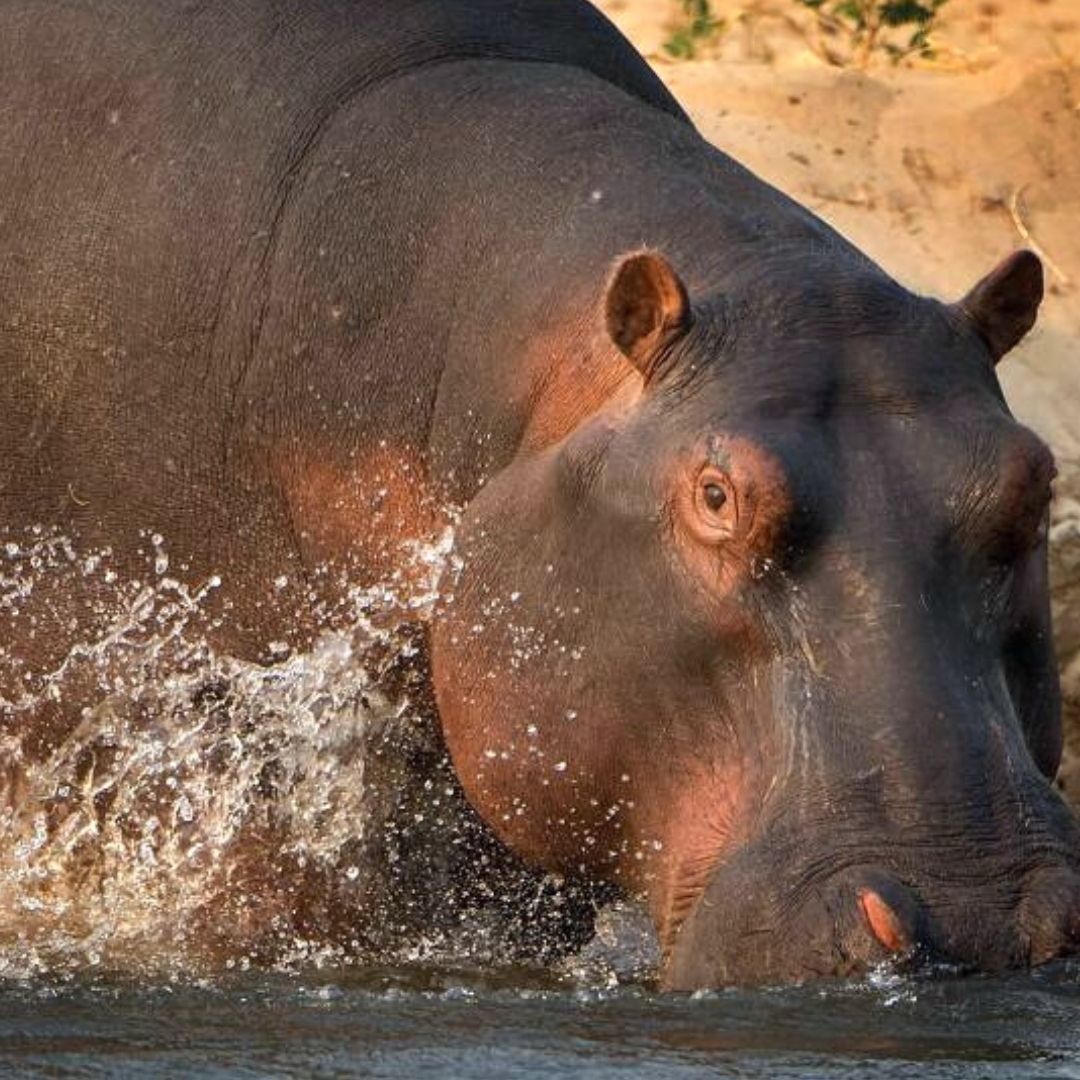New research has discovered that hippos can distinguish friend from foe by the sound of a grunt, bellow or honk!


Photograph: African Wildlife Foundation
New Insights Into The Communication Between Hippos
Hippopotamuses are big, noisy, boisterous creatures. Weighing up to 5 tonnes with incredibly powerful jaws, hippos are one of the deadliest animals in Africa. Their “wheeze honks'' can be heard over a very long distance — but, all in all, we don’t know a lot about their communication.
That’s why Nicolas Mathevon of the University of Saint-Etienne, France, set out to study the communication network of hippos, through bioacoustics, which is how animals communicate via sound. His team uncovered several insights that may help us to understand how hippos communicate — which, had mostly been a mystery."We found that the vocalisations of a stranger individual induced a stronger behavioural response than those produced by individuals from either the same or a neighbouring group."


Photograph: African Wildlife Foundation
Hippos Can Recognise The Calls Of Friends, Neighbours & Strangers
To conduct this research, Mathevon and his team worked in the Maputo Special Reserve in Mozambique; an area which contains several lakes inhabited by hippos. Hippos are notoriously hard to study because they’re difficult to identify, mark and track — especially with their aggressive nature!
First, Mathevon and his team recorded the individual calls from a member of each hippo group. Then, they played back the recordings to the hippos to see how they’d react to the sound of their own group (familiar), another group from the same lake (neighbour), and a group from a distant lake (stranger).
Hippos are able to identify conspecifics based on vocal signatures. They are also territorial entities that behave less aggressively toward their neighbours than strangers.


Photograph: African Wildlife Foundation
Hippos Are Very Alert, Despite Their Relaxed Appearance
Mathevon and his team were surprised by their findings. When hippos are relaxing in the water, you wouldn’t expect them to be hyper-aware of their surroundings. The results of the experiment showed that hippos responded instantly to the recordings that Mathevon and his team played — whether it was friend or foe.
What they discovered was that hippos typically responded vocally or approached the noise, but if it was a stranger, the hippos sprayed dung — which is a territorial marking behaviour. Overall, the hippos grew hostile when they heard the call of a stranger.
"The responses to the sound signals we broadcast were very clear, and we did not expect that,” Mathevon said.


Photograph: Paul Runze / African Wildlife Foundation
These Findings Will Help Hippo Conservation Efforts!
Good news! These new insights will actually help hippo conservation efforts and policies. Sometimes, hippos are relocated to ensure local populations stay at a healthy number. In these cases, Mathevon says, “before relocating a group of hippos to a new location, one precaution might be to broadcast their voices from a loudspeaker to the groups already present so that they become accustomed to them and their aggression gradually decreases”.
Basically, the hippos would audibly “meet” their neighbours before seeing them, which may reduce hostility. Currently, the hippopotamus is classed as Vulnerable; their populations are on the decline due to hunting and habitat loss. The fat, teeth and ivory tusks found on hippos are valuable prizes to hunters. Hundreds more get shot in hippo-human conflict instances.
What do you think of this new discovery? In the future, Mathevon and his team hope to learn more about the communication network of hippos and how it might help us to save this vulnerable species.
Love learning unusual things about animals? We do too! For more stories like this, head over to our Eco News category and check out the blogs below.
North America’s First Whale Sanctuary Set To Open In 2023
Sea Otters’ Destructive Digging Habit Is Boosting Ocean Health


